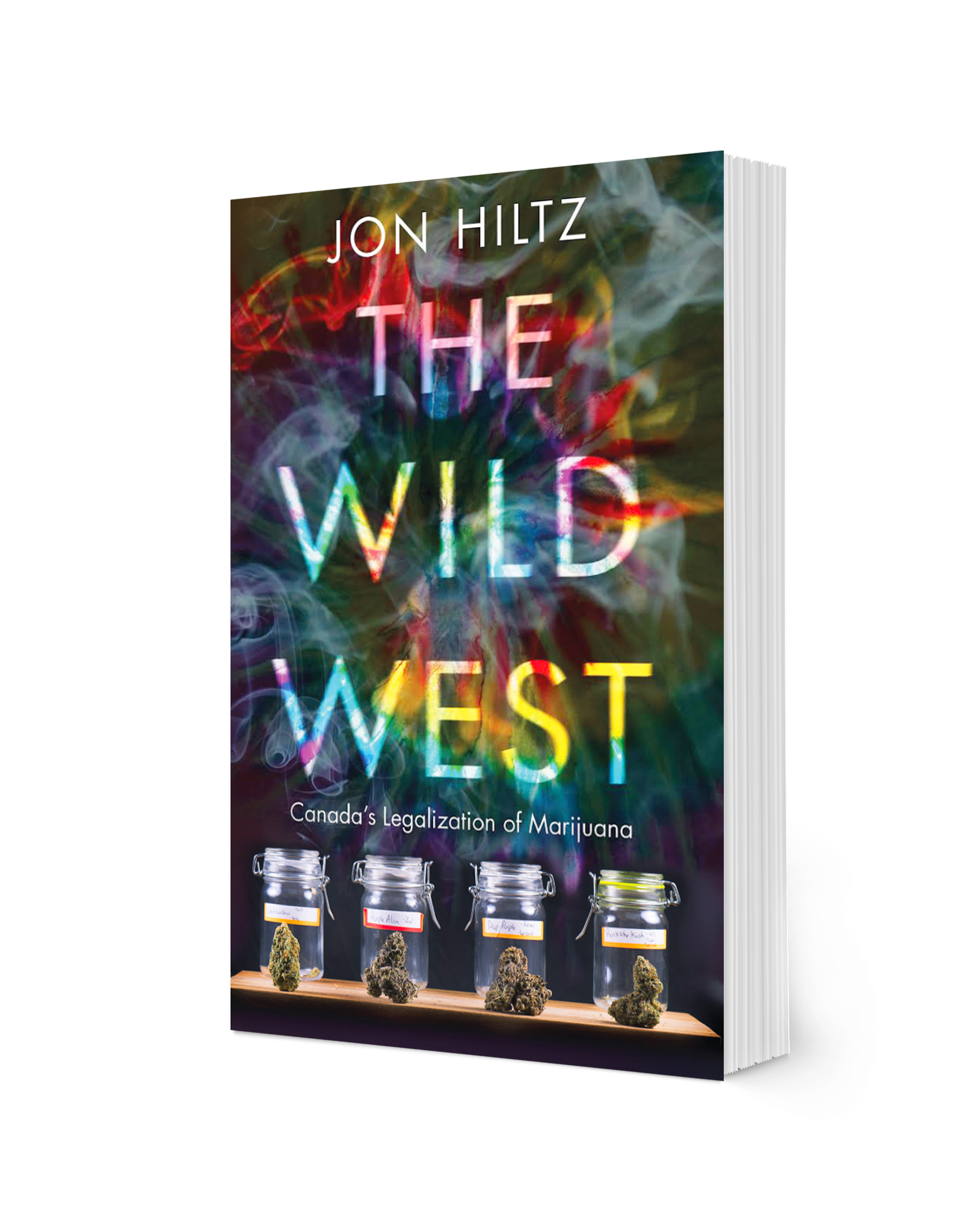In Jon Hiltz’s first book, The Wild West: Canada’s Legalization of Marijuana, readers are taken on a topsy-turvy ride, with an insider and former journalist serving as their guide.
Available exclusively on Amazon, the book details the end of cannabis prohibition in Canada and the years leading up to legalization. Hiltz, currently director of business development for INDIVA Limited, a licensed cannabis producer in London, Ont., and a former journalist for Marijuana.com, shares in his new book an up-close and personal look at what it takes to operate in Canada’s legal cannabis industry.
The book begins with a history lesson: it covers the almost-decriminalization of cannabis in the 1970s to the court challenges two decades later that led to the Marihuana for Medical Access Regulations (MMAR) in 2001, a program that allowed patients to order medical cannabis from a single producer, Prairie Plant Systems, to grow their own at home or access through a designated grower.
To put into context and offer a learned perspective, Hiltz interviews historian Catherine Carstairs, PhD, professor and chair of the history department at the University of Guelph. Discussing the racial intolerance of the 1920s and 1930s in Canada, Carstairs describes how fear and ignorance surrounding Chinese immigrants gave birth to a panic of sorts related to illicit drug use and trade.
Eventually, this intolerance and fear played a role in the federal government outlawing cannabis in 1923, long before Harry Anslinger, the first commissioner of the Federal Bureau of Narcotics, did the same in the U.S. more than a decade later in 1937 via the Marihuana Tax Act.

Hiltz goes into fascinating detail about the evolution of legal cannabis in Canada over the 17 years since the MMAR came into being.
Although he had done some earlier freelance writing, it was his job writing about cannabis in Canada for Marijuana.com that caught INDIVA’s eye and led to his current position with the company, which supported the book by coming on as publisher.
Three weeks into his job with Marijuana.com, Project Claudia, a series of raids executed by Toronto police on unlicensed dispensaries, set the stage for changing the focus of his work from lifestyle stories to journaling what was unfolding in Canada as the country navigated toward legalization.
“From that point on, my career was essentially covering the ups and downs of the industry. The grey market, the legal market, how they all got along, who was legalizing around the world and it just became way more fascinating,” Hiltz tells The GrowthOp by phone from Costa Rica, where he and his family are spending the year as he writes for various publications, including INDIVA’s website.
“The legalization of cannabis was a very complex and diverse issue. It wasn’t just like we’re going to turn the lights on and cannabis is legal. It required a huge amount of planning and debates, ups and downs, bad decisions were made, and good decisions were made,” he says.
In The Wild West: Canada’s Legalization of Marijuana, Hiltz chronicles Justin Trudeau’s 2015 electoral win and his subsequent plans to legalize cannabis, including all of the uncertainty that ensued. “The book itself is an homage to the grey market and my time within it,” he shares.
“I talk a lot about the grey market, people who were opening unlicensed dispensaries, people who were selling under the table, the advocates and the activists—they’re the ones who got us here and we really need to remember that,” he emphasizes.
Hiltz says he feels that, at the end of the day, some stigma around cannabis remains, despite legalization having made some giant strides toward erasing this. Still, he says he is hopeful that, in time, the stigma will cease to exist.
“I hope, and I expect, that the cannabis industry will get to a point where it’s just as normal to go and buy a joint in a store as it is to buy a bottle of Jack Daniels.”
He imagines a not-too-distant future in which someone could walk into a cannabis retail shop and pick up a copy of an in-store magazine, similar to what is found in the LCBO (Liquor Control Board of Ontario), that offers suggestions on pairing and strains.
Hiltz points out the packaging that cannabis comes in is far too excessive, particularly during a time at which movement should be toward much more environmentally friendly. He says he also feels the impaired driving laws—which he views as too general and harmful for medical cannabis users, specifically—need to be improved.
Despite a few issues of concern, Hiltz’s enthusiasm for cannabis and the industry in which he works and writes is obvious when he speaks about or reads his book. “At the end of the day, we still have legal weed, which is pretty amazing,” he says.
“It is a fantastic opportunity that Canada is among the first (to legalize). Not only does it highlight the progressive and open-minded nature of the country, but more importantly, it allows Canada to financially dominate in this sector on a global scale. We are the world leaders in cannabis for this moment, and that is no small feat,” Hiltz adds.
This article was originally published by The GrowthOp.